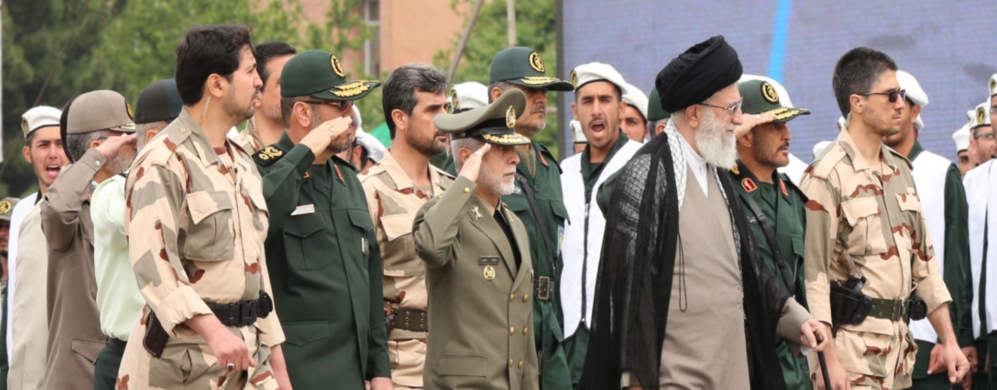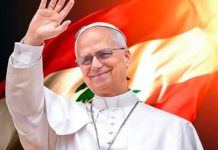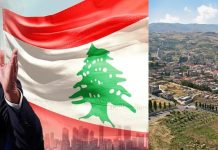Iran’s Support for Terrorism Under the Joint Comprehensive Plan of Action ( JCPOA)
Matthew Levitt/The Washington Institute/July 09/16
The Islamic Republic’s terror sponsorship has hardly abated since the nuclear deal was reached, giving the Obama administration another opportunity to reassess these menacing behaviors and hold Tehran accountable.
July 14 will mark one year since the signing of the Joint Comprehensive Plan of Action (JCPOA), the nuclear agreement with Iran. This article is part of a series of PolicyWatches assessing how the deal has affected various U.S. interests, to be released in the days leading up to the anniversary.
When the JCPOA was implemented in January, terrorism-related sanctions remained in place against Iran, and U.S. officials promised they would hold Tehran accountable for any such activity despite the lifting of nuclear sanctions. As Secretary of State John Kerry noted on January 21, “If we catch them funding terrorism, they’re going to have a problem with the United States Congress and with other people, obviously.” And yet, in the year since the deal was signed, Iran’s threatening behavior has not diminished.
In February, Director of National Intelligence James Clapper testified that “Iran, the foremost state sponsor of terrorism — continues to exert its influence in regional crises in the Middle East through the International Revolutionary Guard Corps-Qods Force (IRGC-QF), its terrorist partner Lebanese Hezbollah, and proxy groups…Iran and Hezbollah remain a continuing terrorist threat to U.S. interests and partners worldwide.” A month later, CENTCOM chief Gen. Joseph Votel testified that Iran had become “more aggressive in the days since the agreement.”
Sponsoring Terrorists in the Levant
Iran has been a consistent supporter of U.S.-designated Palestinian terrorist organizations, including Palestinian Islamic Jihad (PIJ) and Hamas. In August 2015, after four rockets hit the Israeli Golan Heights and Upper Galilee, Jerusalem attributed the attack to a joint effort by PIJ and the IRGC-QF. These claims were substantiated when Israeli counterstrikes against the cell that launched the initial salvo wound up killing an IRGC general, Mohammad Ali Allahdadi.
In September, the Treasury Department designated Maher Jawad Yunes Salah, a dual British-Jordanian citizen who headed the Hamas Finance Committee headquartered in Saudi Arabia. In that capacity, he had been overseeing the transfer of tens of millions of dollars from Iran to the committee; these monies were used to fund Hamas activity in Gaza, including the group’s military “wing,” the Izz al-Din al-Qassam Brigades.
Although Iran and Hamas have argued at times over the latter’s refusal to support the Assad regime in Syria, they rekindled their broken relationship this year. According to a November report issued by Congressional Research Service, “Iran has apparently sought to rebuild the relationship with Hamas by providing missile technology that Hamas used to construct its own rockets, and by helping it rebuild tunnels destroyed in the [2014] conflict with Israel.” At a press conference in 2015, an Iranian Foreign Ministry spokesman asserted that bolstering resistance to Israel — in part by funding Hamas — is a “principled policy.” This support was clarified in February when a Hamas delegation visited Iran for eight days and met with various officials, including IRGC-QF commander Qasem Soleimani. According to a member of the delegation quoted by the Jerusalem Post, Soleimani stated that “Iran was a staunch supporter of the Palestinian resistance before the nuclear deal, and it will remain so after the deal.” Hamas celebrated the trip in a statement of its own, highlighting its “successful and positive meetings with Iranian officials.”
Despite this rapprochement with Hamas, Iran continued its sponsorship of al-Sabirin, a new proxy militant group in Gaza. Led by a former PIJ commander, al-Sabirin reportedly receives $10 million a year from Tehran. Members of the group have also apparently converted to Shia Islam despite operating in Sunni-majority Gaza, adding another level of complexity to the relationship. In December, al-Sabirin claimed responsibility for an explosion that targeted Israeli forces on the border.
Elsewhere in the Levant, Lebanese Hezbollah remains Iran’s primary terrorist proxy. Last month, the group’s secretary-general, Hassan Nasrallah, bluntly declared that “Hezbollah gets its money and arms from Iran, and as long as Iran has money, so does Hezbollah.” Since the JCPOA was signed, the U.S.-designated terrorist organization has engaged in numerous criminal, espionage, and terrorist plots.
In February, the U.S. Drug Enforcement Administration announced that it had uncovered a major drug trafficking and money laundering network during a multinational investigation. The agency named the “Business Affairs Component” of Hezbollah’s External Security Organization as one of the main benefactors of a network that collected and transported “millions of euros in drug proceeds,” which in turn were used to purchase weapons for Hezbollah fighters in Syria.
Last year, less than a week after the JCPOA was signed, Israeli officials arrested a Swedish-Lebanese man, Hassan Khalil Hizran, at Ben Gurion Airport for attempting to gather intelligence on Israeli targets on Hezbollah’s behalf. And just days before the signing, a Lebanese-Canadian man confessed his ties to Hezbollah and said the group had directed him to attack Israeli targets. He was jailed in Cyprus after authorities seized nine tons of a chemical compound used in bombmaking from his home there.
As Hezbollah pours considerable weaponry and manpower into the conflicts in Syria and Iraq, it has also directed third-party actors to carry out terrorist attacks. This January, Israeli authorities arrested five Palestinians for planning an attack “organized and funded by Hezbollah.” According to Israeli officials, the leader of this West Bank cell was recruited by Hassan Nasrallah’s son Jawad. Hezbollah trained and directed the group to surveil Israeli targets, giving the men $5,000 to carry out suicide bombings and other attacks. Based on these and other cases, a senior Israeli official warned in February that Iran was “building an international terror network” of cells with access to weapons, intelligence, and operatives to carry out attacks in the West.
The Gulf
In naming Iran as a major sponsor of terror, the State Department’s 2015 Country Reports on Terrorism revealed that Tehran has “provided weapons, funding, and training to Shia militants in Bahrain,” and that the island state had “raided, interdicted, and rounded up numerous Iran-sponsored weapons caches, arms transfers, and militants” that year. In November, Bahraini authorities arrested forty-seven individuals for their involvement in a terrorist organization linked to the IRGC. And this January, authorities detained six individuals for their involvement in a terrorist cell with claimed links to Iran and Hezbollah. The cell was accused of orchestrating a July 2015 explosion that killed two people outside a girls school in Sitra.
Iran also continued to support Shiite terrorists in Kuwait. In August 2015, local authorities raided a terrorist cell of twenty-six Shiite Kuwaitis, accusing them of amassing “a large amount of weapons, ammunition, and explosives.” After media outlets reported the cell’s alleged links to Iran and Hezbollah, the public prosecutor issued a gag order on the investigation. In January, a local court sentenced two men, one Kuwaiti and one Iranian, to death for spying on behalf of Iran and Hezbollah.
Tehran’s antagonistic relationship with Saudi Arabia also continued this year, mainly through proxy warfare, but also through alleged activities against Saudi targets. In February, the Saudi-aligned Yemeni government asserted that it had evidence of “Hezbollah training the Houthi rebels and fighting alongside them in attacks on Saudi Arabia’s border.” And according to another report that same month, Filipino authorities claimed to thwart an IRGC plot against a fleet of Saudi passenger planes in the Philippines.
Beyond the Middle East
This May, an American drone strike killed Afghan Taliban leader Mullah Akhtar Mohammad Mansour on the Iran-Pakistan border. At the very least, his activities indicated tacit Iranian support for the Taliban, if not more. U.S. authorities had tracked him visiting family in Iran and conducted the strike as he returned to Pakistan. Afterward, Taliban spokesman Zabihullah Mujahid stated that Mansour had been on one of his several “unofficial trips” to Iran because of “ongoing battle obligations.”
Previously, in November, Kenyan authorities arrested two Iranian citizens on charges of plotting to carry out a terrorist attack against Israeli targets in Nairobi. The Iranians were allegedly sent by the IRGC-QF.
A month later, the Nigerian army launched a massive attack on the Shiite town of Zaria after reportedly obtaining intelligence about an assassination attempt on the country’s army chief of staff. The plot was allegedly organized by the Islamic Movement of Nigeria, a Shiite militant group that Iran had previously trained in the assembly of explosives and other skills, according to a former Iranian Foreign Ministry advisor.
Conclusion
At an April 2015 Washington Institute event held three months before the signing of the JCPOA, Treasury Secretary Jack Lew stated, “Make no mistake: deal or no deal, we will continue to use all our available tools, including sanctions, to counter Iran’s menacing behavior.” A year later, President Obama underscored this pledge to Gulf Cooperation Council partners at a Camp David summit: “We have to be effective in our defenses and hold Iran to account where it is acting in ways that are contrary to international rules and norms.”
Today, however, it is clear that Iran’s support for terrorism has only increased since the deal was reached, and officials cannot feign surprise on the matter. In June, for example, senior Treasury official Adam Szubin bluntly concluded, “As we expected, Iran has not moderated this conduct since the implementation of the JCPOA.” Given Iran’s ongoing support for terrorism and regional instability and the administration’s repeated insistence that it would hold Tehran’s feet to the fire on these very issues, the JCPOA’s first anniversary presents Washington with a perfect opportunity to reassess the regime’s menacing behavior and take steps to hold it accountable.
**Matthew Levitt is the Fromer-Wexler Fellow and director of the Stein Program on Counterterrorism and Intelligence at The Washington Institute.





















